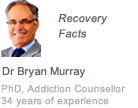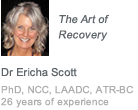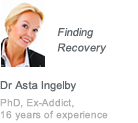Ritalin Addiction
Ritalin addiction – a myth or not? Currently research continues, but it seems that long term use in high doses does have an addictive impact. Ritalin addiction propensity does not seem to be related to the method of ingestion, although previously it had been suggested that addiction occurred only when the drug was sniffed or injected, and that the effects were similar those of cocaine.
What is Ritalin?
Methylphenidate, closely related to amphetamine, is prescribed as Ritalin – a drug that is best known as a medication for those who suffer from ADHD (short for attention deficit hyperactivity disorder) or ADD (attention deficit disorder). Ritalin is a white powder that is formulated by the pharmaceutical industry into either tablet or capsule forms. Ritalin addiction is not uncommon simply because of the way it works, the pleasure it can give and long-term prescribing to treat both childhood and adult conditions.
The tablet form is usually active for up to 5 hours, while capsules have a longer lasting effect (up to 8 or 12 hours) because of their extended release feature. Ritalin has the same effect on the brain as amphetamine, although not as intense. A psycho stimulant; Ritalin stimulates the nervous system and forces the release of chemicals in our brain such as dopamine and epinephrine. These chemicals, known as neurotransmitters, help our brain to communicate with our body. Neurotransmitters give instructions from our brain to our body to do all the things it needs to do; breathe, sleep, move, eat and the like. They are also influential when it comes to our emotions, thoughts and feelings.
Children as well as adults can be prescribed Ritalin as it is an effective medication to help those who suffer from conditions like ADHD, ADD and narcolepsy. The symptoms of these conditions are caused by a loss of balance in, or complete lack of, neurotransmitters. Ritalin works by stimulating the brain to send out the right signals at the right time to the body. Those of us suffering from ADHD or ADD can suffer from symptoms like; loss of concentration and or hyperactivity and in the case of narcolepsy, that is a chronic sleep disorder, insomnia or sudden and extreme fatigue.
Ritalin addiction, the risks, the signs and the effects
When people diagnosed with conditions mentioned above use methylphenidate they usually follow their doctors’ orders and stick to the prescribed doses. Ritalin addiction will in these cases not be acute or particularly noticeable; even though when a person stops treatment, it has to be done gradually, weaning the user off the drug over a period of time in order to avoid withdrawal symptoms. But this does indicate an addiction is already present, and users may also be addicted to the pleasurable side effects of Ritalin, which will give the usual high or rush associated with almost every kind of drug addiction or abuse.
Ritalin is a psycho-stimulant and alongside effects such as loss of appetite, many users enjoy the increased sense of pleasure that taking it provides as well as using and abusing Ritalin to lose weight or to stay active longer. Those who practice sports often use it to keep their energy level up.
There is a red zone of warning that Ritalin addiction is fast becoming a real problem – when an addict is no longer prescribed, monitored or supervised medically but continues to obtain the drug. Ritalin is sold, like many other ‘street drugs’ illegally, by people who obtain it legally and then sell on for profit. These dealers may not be our usual picture of a criminal drug dealer – but that is what they are, no matter how they may justify supplementing their income via this practice.
Ritalin addiction may not feel or present as the stereo-typical image of addiction for a long time, but it will, unfortunately, slowly destroy an addict because continued use and abuse of Ritalin causes a great deal of damage to both our bodies and our brains.
When taken in high doses, Ritalin can cause side effects that, while they are not immediately fatal, are unhealthy in the long run, while other side effects are more dangerous and can be considered as an immediate threat to our health, or even lives:
- High blood pressure and high body temperature have a debilitating effect on our bodies
- Excessive sweating
- Nervous twitching
- Irregular heartbeat
- Seizures
- Hallucinations
Long term abuse and Ritalin addiction can also cause irreparable brain damage and even death.
How to help and find help for Ritalin addiction
People might not always be aware that their behavior is dangerous or harmful; they may not realize that they are past the red warning zone and need to get help to address their addiction. But telling an addict that they need help is not easy – we risk isolating the person we are trying to advise, and in extreme circumstances can trigger violent outbursts or other aberrant behavior.
If you think a loved one has a Ritalin addiction or if you think you have a problem yourself there are professionals who can help – rehab centers, therapists, detox programs, intervention specialists and counselors are all available to help you. Whatever the reason you are reading this article, and looking for information about the dangers of Ritalin addiction, the probability is that you need to do something more than just read about it. There is no reason to wait, no reason to delay getting help. Call your physician, and do it now.












